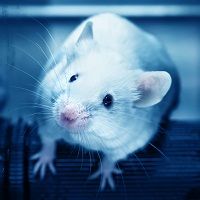Article
Schizophrenia Patients Experience Cognitive and Emotional Symptoms
Author(s):
Researchers from Germany reported mouse models of schizophrenia experience both cognitive and emotional effects of schizophrenia.

Schizophrenia patients are associated with positive symptoms (such as hallucinations and delusions) and negative symptoms (such as cognitive deficits and impairments of emotional overdrive), according to researchers from Goethe University in Frankfurt. The research was published in the Proceedings of the National Academy of Sciences.
The investigators found that these symptoms are the results of a selective dopamine midbrain population that is essential for emotional and critical processing. The hypothesis was tested in mice models, and demonstrated reduced electrical in vivo activity in the model.
“In order to develop new therapy strategies we need an improved neurobiological understanding of the negative symptoms of schizophrenia,” explained Jochen Roeper in a press release.
The scientists created a transgenic mouse model based on the over expression of dopamine type 2 receptors, which originally displayed neurotypical levels of cognitive and emotional negative symptoms. Essentially, it was a mouse model of schizophrenia. They were able to detect impairment in working memory which corresponded to neurochemical changes in dopamine levels located in the prefrontal cortex. The researchers were not able to determine, however, the cause of the neuropsychological impairments of dopamine, the press release continued.
The researchers continued their studies and were able to identify the neuropsychological impairments with the dopamine system. The scientists used single cell recordings in the intact brain of mice to show dopamine midbrain neurons responsible for emotional and cognitive processing displayed altered patterns and frequencies of electrical activity, the statement explained. Adjacent dopamine neurons that are related to motor control, however, were not affected by the changed dopamine levels.
“This result emphasizes the presence of a critical early phase for the development of cognitive deficits in schizophrenia,” Roeper continued in the statement. “Our results show that altered neuronal activity of selective dopamine neurons is crucial for schizophrenia.”
The researchers next want to examine how the neuronal activity of dopamine neurons changes during the working memory tasks. They were further able to prove the pathological discharge patterns of dopamine neurons persisted even after the transgene had been inactivated in adult mice, which is related to the persistence of cognitive deficits in mice and human patients.
“These results suggest that functional deficits relevant for schizophrenia symptoms may involve differential regulation of selective dopamine pathways,” the authors summarized.




